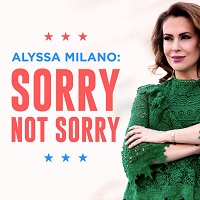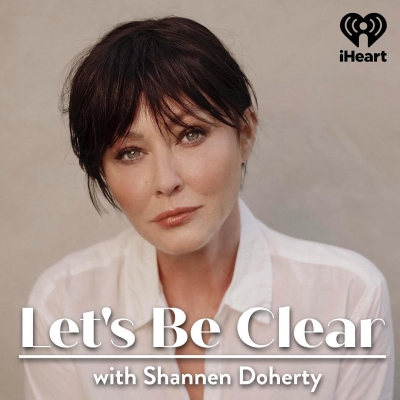The New York Times heeft een heel artikel over de nieuwe ‘Charmed’ gepubliceerd.
Three sisters living in a spooky Victorian house, discovering their supernatural powers, battling to protect the human world from demons: Much about CW’s reboot of “Charmed” will seem familiar to anyone who watched the original.
And much will seem familiar to anyone watching the news now. “This is not a witch hunt,” goes the first line in the premiere episode, as the sisters’ mother, a women’s studies professor, seeks to bring a misogynist colleague to justice. Some of the show’s demons masquerade, by daylight, as sexual predators. And according to “Charmed,” the first sign of the apocalypse is the election of President Trump — or, as the show none too subtly puts it, “When the weakest of men reaches ill-gotten glory.”
The reboot wasn’t always so clearly synchronized with the current charged moment in our culture. “In the development process, we imagined the show as a prequel set during the rise of the women’s movement [in the 1970s],” Jennie Snyder Urman, creator of the new “Charmed,” who also has “Jane the Virgin” on the network said. “Then the election happened. There was the shock of the morning after, and the anger at being shocked. It felt like we should be examining this present moment instead.”
The original “Charmed, which debuted in 1998 on the WB network and lasted for eight seasons, starred Shannen Doherty, Alyssa Milano, Holly Marie Combs and, later, Rose McGowan. It possessed a female-empowerment blueprint, with the heroines banding together to battle villains. But whether that “Charmed” was actually aligned with feminism remains a subject of some fan debate. (Detractors point to the actresses’ wardrobes, which got more revealing as the series progressed.) But when news of the show’s reboot broke, publicity descriptions declaring the update a “feminist” take rankled the original talent.
“Guess we forgot to do that the first go around,” Ms. Combs tweeted. Ms. Doherty and Ms. Milano — who, along with Ms. McGowan, has become a vocal player in the #MeToo movement — expressed displeasure as well.
“The marketing that said ‘this is feminist,’ implying theirs wasn’t, that was a mistake,” Ms. Urman said. “Of course theirs was.”
Of the fans who echoed the original stars’ negative feedback, she added: “I knew this show had a passionate, protective fan base. You’re only rebooting something because it has a passionate, protective fan base.”
Ms. Urman’s “Charmed” courts a fan base that’s as ardent about issues as it is about fantasy. Her witches confront gender dynamics as often as they do goblin enemies. Sometimes, they deal with the two simultaneously.
“When it comes to consent, I can change my mind at any time!” Maggie (Sarah Jeffery) shouts at a boy she’s kissing, who’s just turned into a demon.
“I feel like we always have something to say on this show,” Ms. Jeffery (“Shades of Blue”) said. “It’s cathartic.”
For Melonie Diaz, the first actress cast in the show, only a project that made a statement would do. “I’m never going to get over the 2016 election,” Ms. Diaz (“Fruitvale Station,” “Be Kind Rewind”) said. “I’m angry on a visceral level. The way I feel is, ‘How can we not be talking about this? The world is a dumpster fire!’”
Ms. Diaz’s Mel is the sort of tightly coiled character common on TV dramas — think Walter White on “Breaking Bad” or Ari Gold on “Entourage” — but one who is rarely a woman. In one scene, Mel crashes her mortified younger sister’s sorority function and stalks the room, threatening to “engage these young men in conversations on rape culture.” In another scene, she punches a male student for disparaging her mother, giving him a nosebleed. “Obviously, the character ‘Mel’ and Melonie are very different people,” Ms. Urman said. “But they share that anger at the state of the world, that desire to create change. That’s what we all bonded over early on.”
Those resistance vibes have even filtered down to the marketing department. Ms. Urman said she felt “instantly electrified” when she saw network promotional art for “Charmed” that featured, above the faces of her three leads, the tagline “Stronger Together” — a throwback to Hillary Clinton’s presidential campaign slogan.
If she’s worried about alienating more conservative viewers with such references, Ms. Urman is not letting on.
“I’ve been at this network for over five years with ‘Jane,’ and they’ve always been supportive,” she said. “They understand and respect the tone of the show.” In an email, CW’s executive vice president for development, Gaye Hirsch, backed up Ms. Urman. “A nod to current politics helps the show feel grounded in the real world,” she wrote. “We want to be relevant rather than preachy.”
Ms. Urman, too, stressed this distinction. “We aren’t hammering themes in every moment,” she said. “We’ll have different kinds of women — we don’t all have the same points of view. We’ll have evil men, but also great men and conflicted men. It’s a balanced portrayal.” The show’s male lead, Harry (played by Rupert Evans), is a whitelighter — a sort of witch guardian angel — who introduces the three sisters to their powers.
Something else that’s notable about Harry: He is often the only white person in the room. Another of-the-moment element of “Charmed” is that its heroines are all Latina, something Madeleine Mantock (“The Tomorrow People”), who plays long-lost sister Macy, said she still can’t quite believe. “I’m used to [auditioning] for things and hearing, in the end, ‘They didn’t want to go diverse,’” Ms. Mantock said. “That happened to me three times in the last year. Now I get to be the hero, and I get to do it with two other women who are sensitive to what’s going on in the world.” She paused. “It’s a blessing and a curse to live a political existence,” she said. “But I can’t imagine being switched off.”
That, for the women behind “Charmed,” is the real connection between them and their characters: an inability to turn away from their power, onscreen and off. “Whatever your opinion of a witch is, we’re broadening it,” Ms. Diaz said. “If somebody calls me a witch, I’m like, ‘thank you.’ Witches change the world.”







